Innovation in vocational education towards transparency and efficiency
On July 9, the Vocational Education Subcommittee of the National Council for Education and Human Resources Development held a meeting to provide comments on the draft Law on Vocational Education (amended). Deputy Minister Hoang Minh Son chaired the meeting.
Attending the meeting were Ms. Nguyen Thi Mai Hoa - Vice Chairwoman of the National Assembly's Committee on Culture and Society; representatives of the Government Office; ministries, branches; National Council for Education and Human Resources Development; Drafting Committee, Editorial Team of the Law on Vocational Education (amended); units under the Ministry of Education and Training ; along with experts, businesses...
Reporting at the meeting, Ms. Nguyen Thi Viet Huong - Deputy Director of the Department of Vocational Education and Continuing Education (Ministry of Education and Training) said: The draft Law on Vocational Education (amended) consists of 9 chapters and 50 expected articles, legalizing 5 policies submitted to the Government .
These are: Innovating the structure of the vocational education system; innovating training programs and organizations and ensuring the quality of vocational education; promoting the role of enterprises and enhancing international cooperation in vocational education; enhancing the mobilization of resources and improving the efficiency of management and use of finance and assets for vocational education; innovating the state management mechanism on vocational education towards transparency and efficiency.
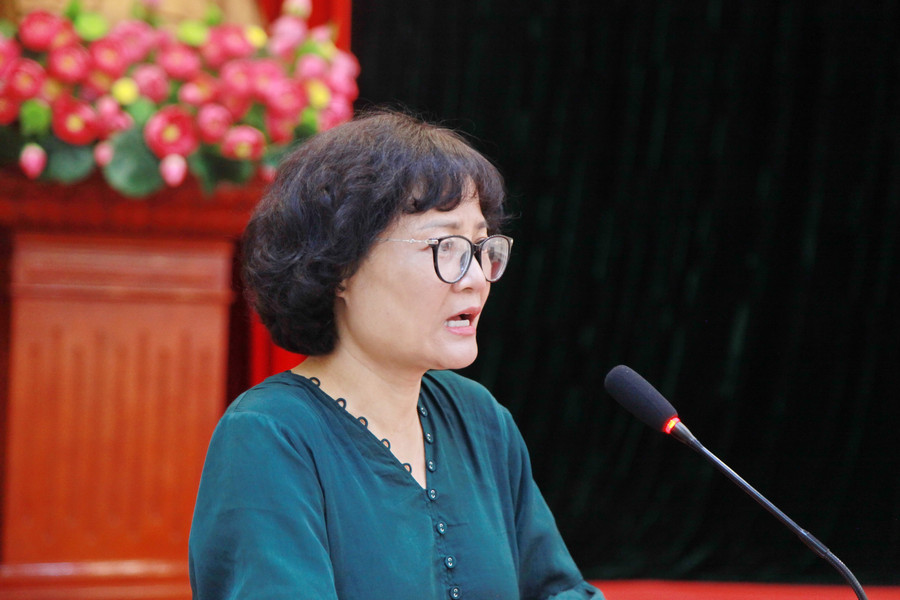
“We have carefully reviewed each point and article in the draft, closely following the requirements so that we can submit it to the council, with the spirit of assigning work in "6 clear" ways: clear people, clear work, clear time, clear responsibility, clear authority and clear results, according to the Prime Minister's request,” said Ms. Nguyen Thi Viet Huong.
The draft Law on Vocational Education (amended) adds many reform-oriented contents, notably the recognition of vocational secondary school programs - an integrated model between general cultural knowledge and vocational skills for students after secondary school. In addition, the draft expands the autonomy of vocational education institutions, specifies regulations on co-staff lecturers, raises training program standards and quality assurance systems.
In particular, many regulations have been adjusted, shortened or transferred to related laws to reduce duplication and administrative procedures, creating more favorable conditions for organizations and individuals participating in vocational education activities. Inappropriate contents such as classification of facilities, conditions for separation - merger, international training cooperation procedures... have been eliminated or delegated to the Government for detailed guidance.
At the same time, the draft adds regulations on recognizing learning outcomes and accumulated skills; expands the subjects of training at college and intermediate levels, such as art education institutions and institutions of the armed forces; allows vocational education institutions to invest abroad, in line with the trend of comprehensive integration.
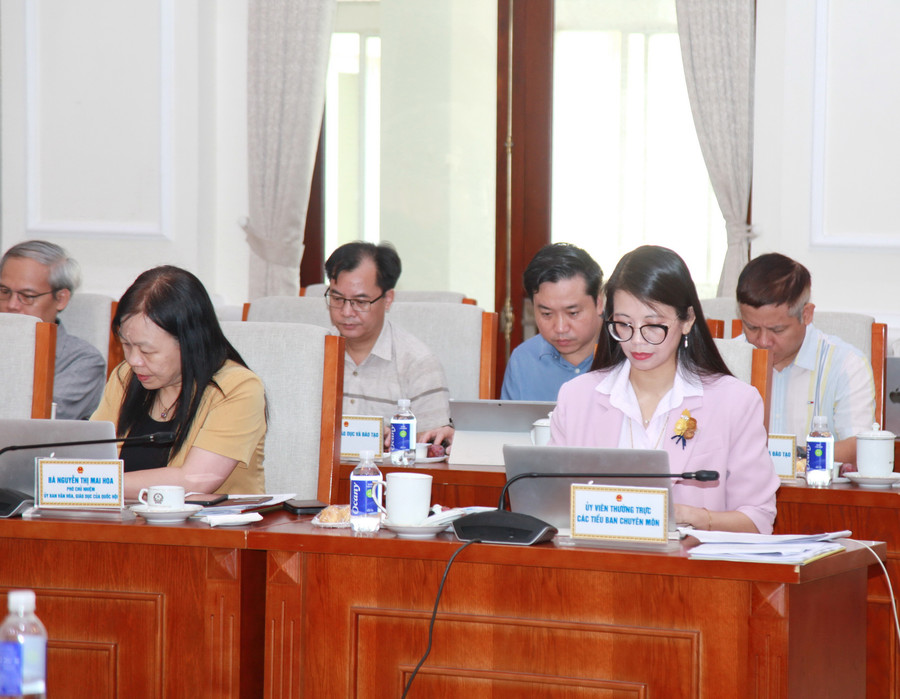
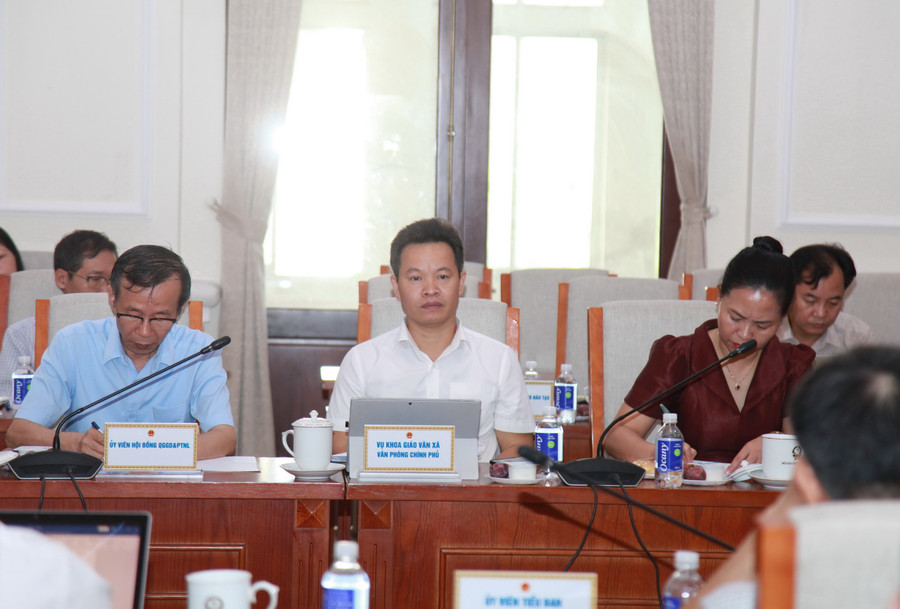
The draft law has many breakthroughs
One of the most interesting contents at the meeting was the inclusion of the vocational secondary school model in the draft Law. Dr. Le Truong Tung - Chairman of the Board of Directors of FPT University commented: "This draft has many breakthroughs, in which the vocational secondary school program is a big step forward, contributing to effective streaming and expanding learning opportunities for students after secondary school".
However, Dr. Le Truong Tung also expressed concern when the vocational secondary school program is regulated to be equivalent to high school in terms of diploma, but does not organize a graduation exam. This, according to him, needs to be considered to ensure fairness and consistency between training systems.
Sharing the same view, Ms. Nguyen Thi Thu Dung - Principal of Thai Binh Medical College suggested that it is necessary to clearly define the content ratio of vocational secondary school program, in which at least 2/3 of the time should be spent on general culture, 1/3 on vocational training. This not only helps students have enough knowledge to take the university entrance exam if needed, but also ensures vocational skills at the appropriate level.
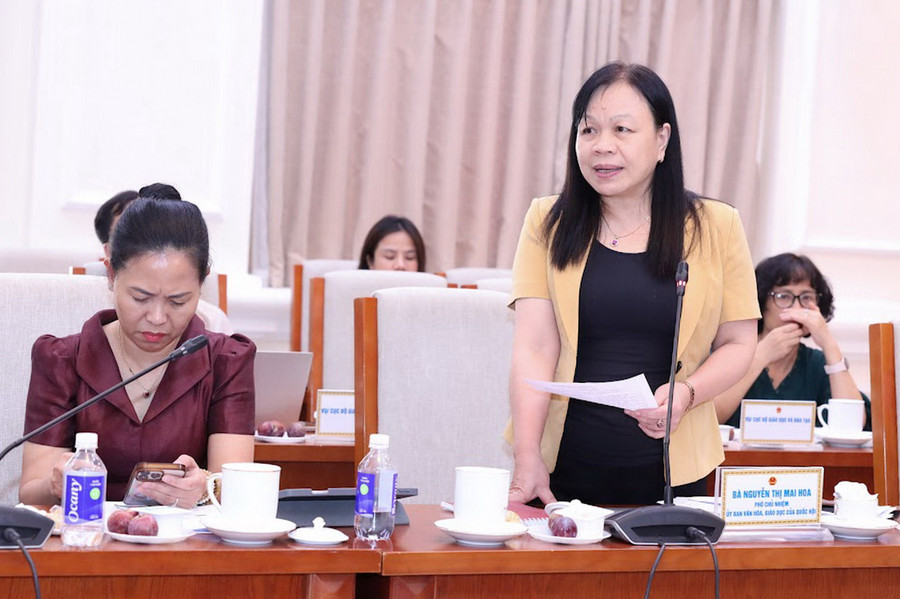
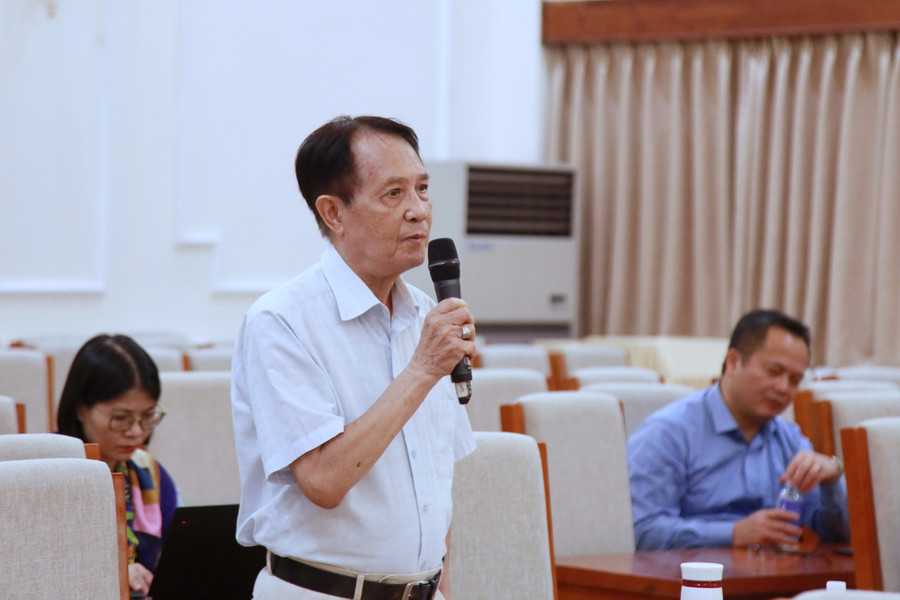
Ms. Nguyen Thi Mai Hoa - Vice Chairwoman of the National Assembly's Committee on Culture and Society assessed: The vocational secondary school model can help remove bottlenecks in streamlining and connection, but it is necessary to clearly define whether to build new or convert existing secondary schools. The implementation must be prepared synchronously in terms of curriculum, facilities and teaching staff.
Prof. Dr. Dao Dang Phuong - Chairman of the Board of the Central University of Art Education expressed his high agreement with the draft's orientation and said: "Art needs to be trained early and systematically. The vocational secondary school model, if implemented appropriately, will create conditions for students to have both a cultural foundation and develop professional skills in a systematic way."
Participating in giving opinions on the role of enterprises, Dr. Le Dong Phuong - former Director of the Center for Higher Education Research (Vietnam Institute of Educational Sciences) said that expanding the participation of enterprises is an inevitable trend. However, not all enterprises are qualified to organize training. Therefore, there should be strict regulations on the conditions, capacity and responsibilities of enterprises when participating in vocational education - as many industrialized countries have done.
Dr. Pham Do Nhat Tien - former Assistant Minister of Education and Training proposed that it is necessary to add a separate article on decentralization of management in vocational education. It is necessary to assign the provincial People's Committee the right to uniformly manage vocational education institutions in the area. This is a prerequisite for localities to proactively coordinate resources and reorganize the system according to actual human resource needs.
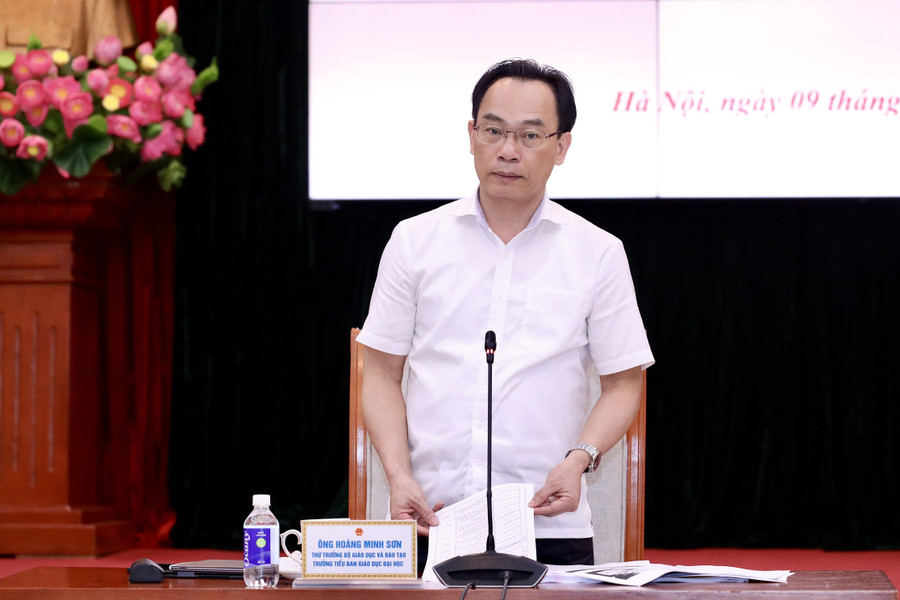
Demonstrate long-term vision, meet development requirements
Concluding the meeting, Deputy Minister of Education and Training Hoang Minh Son emphasized: The revised Law on Vocational Education this time not only replaces the current Law but also must demonstrate a long-term vision, meeting development requirements in the context of strong international integration and digital transformation.
It is important to define the scope of the Law. It is necessary to clarify that vocational education only includes levels within the national education system such as primary, secondary, vocational secondary and college. Vocational training forms provided by enterprises and international organizations are not within the scope of the Law, because the State cannot manage all vocational training models outside the system.
At the same time, the Law needs to create a basis for recognizing skills and training certificates, thereby promoting lifelong learning and increasing the competitiveness of workers.
Regarding the vocational high school model, the Deputy Minister said that it is possible to name it according to the specific field such as "technical high school", "art high school", etc. depending on the training orientation. The most important thing is to ensure a suitable program, a team with solid expertise and a clear implementation roadmap.
The Deputy Minister also supports the regulation of joint lecturers in the Law, but notes that there needs to be a clear definition. Lecturers must have clear appointments and assignments, ensuring responsibility and quality like full-time lecturers. Avoid abusing this concept for cases of guest lecturers without long-term commitments.
Deputy Minister Hoang Minh Son suggested promoting communication work, especially on the vocational high school model - a relatively new content, so that public opinion and related subjects understand correctly, creating consensus in society.
Source: https://giaoducthoidai.vn/nang-cao-chat-luong-giao-duc-nghe-nghiep-trong-giai-doan-moi-post739052.html




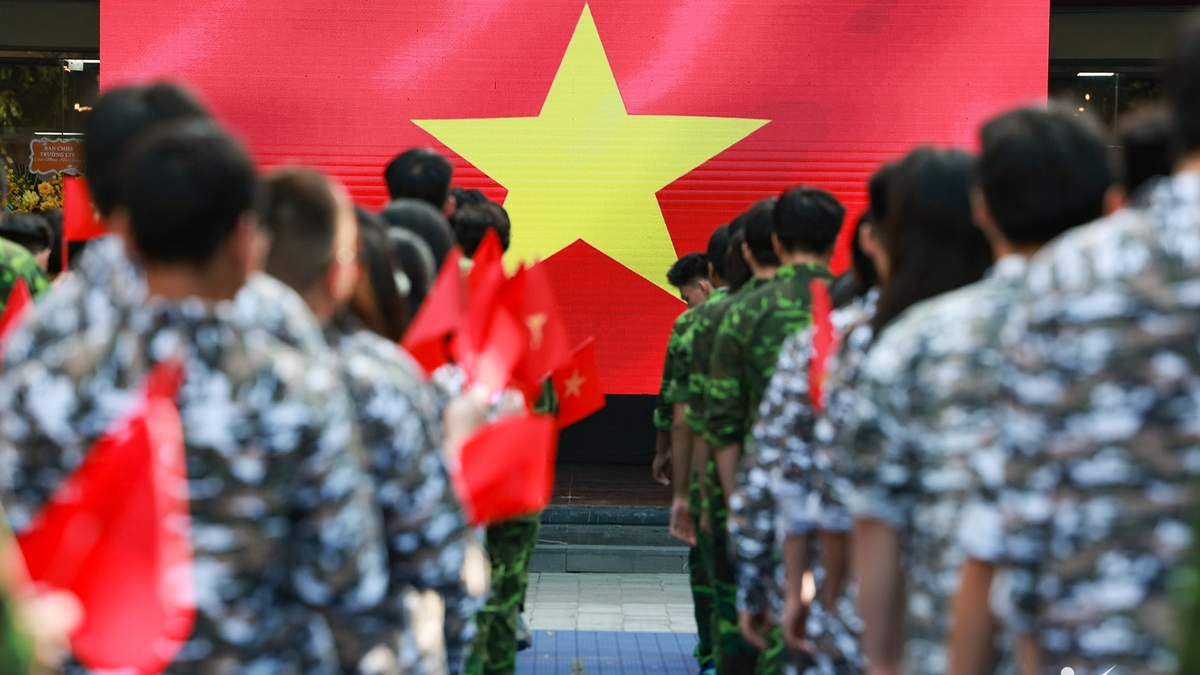
![[Photo] The drum beats to open the new school year in a special way](https://vphoto.vietnam.vn/thumb/1200x675/vietnam/resource/IMAGE/2025/9/5/b34123487ad34079a9688f344dc19148)
![[Photo] Hanoi students excitedly and joyfully open the new school year 2025-2026](https://vphoto.vietnam.vn/thumb/1200x675/vietnam/resource/IMAGE/2025/9/5/ecc91eddd50a467aa7670463f7b142f5)

![[Photo] Opening ceremony of "Digital Citizenship - Digital School" and commitment to civilized behavior in cyberspace](https://vphoto.vietnam.vn/thumb/1200x675/vietnam/resource/IMAGE/2025/9/5/222ec3b8892f443c9b26637ef2dd2b09)




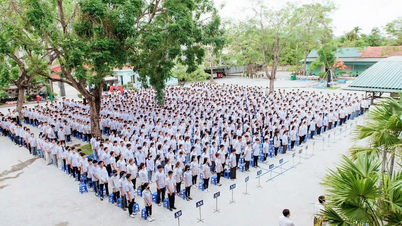
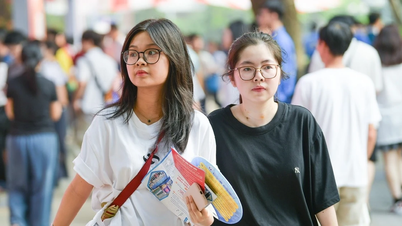
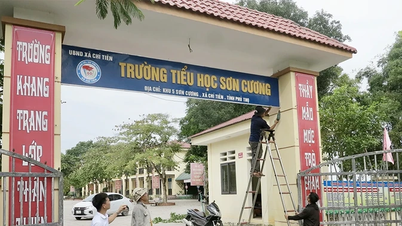

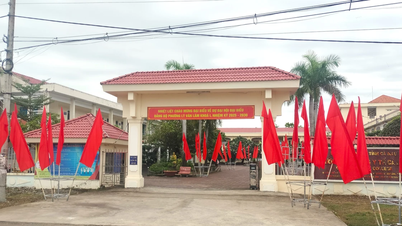

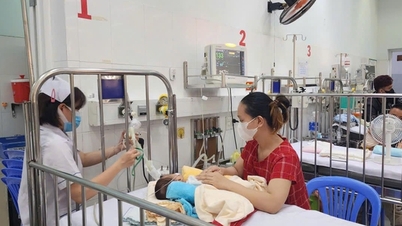



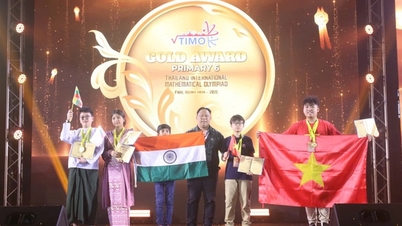
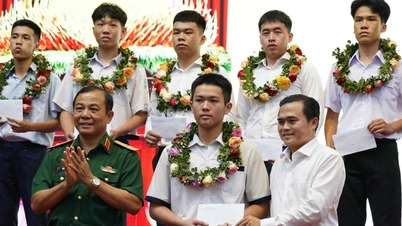



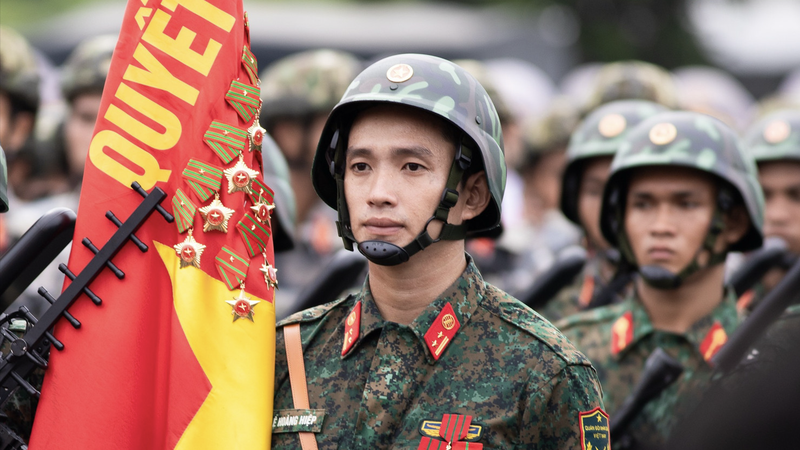
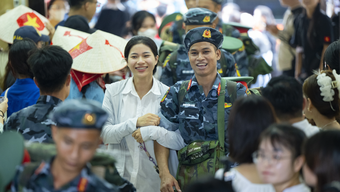



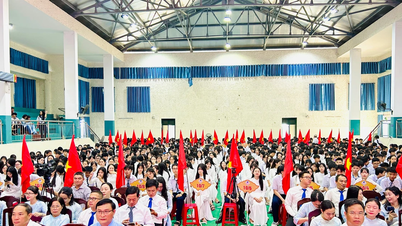
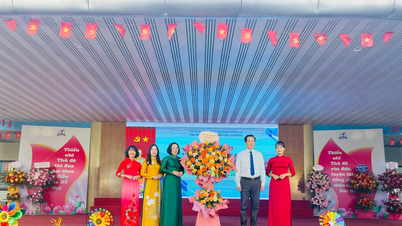
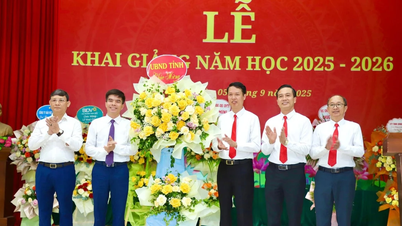


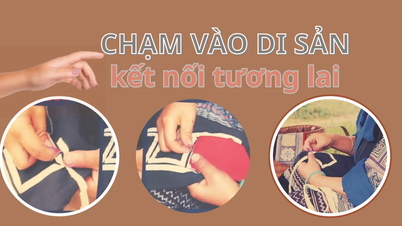

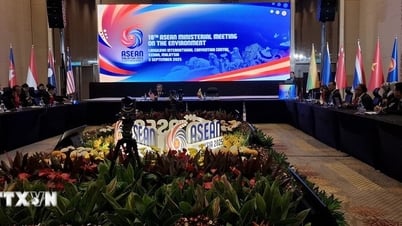



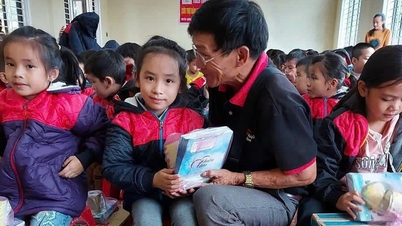



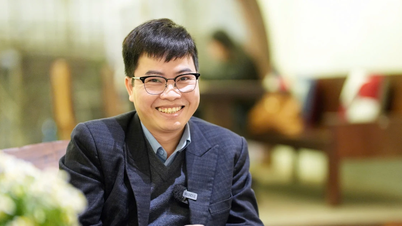
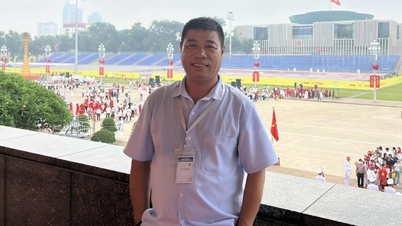
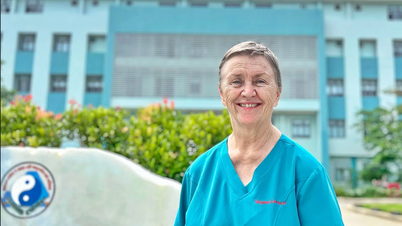
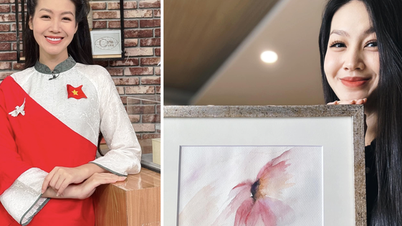






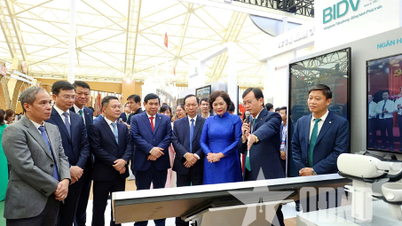
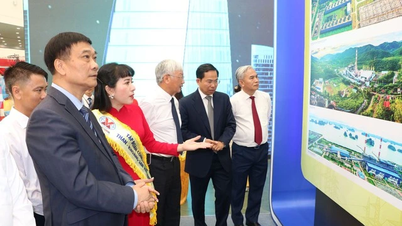










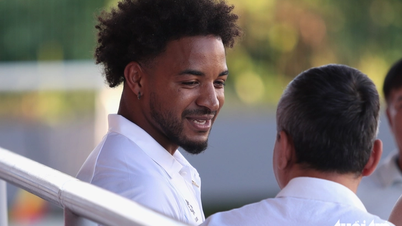
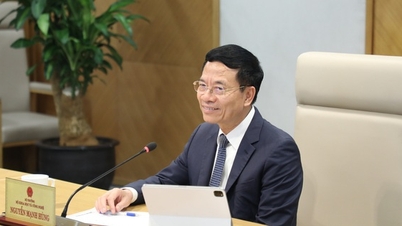

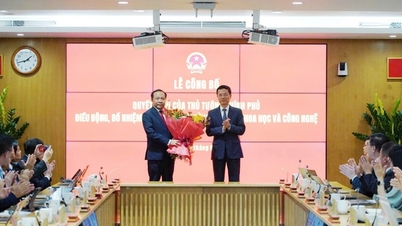


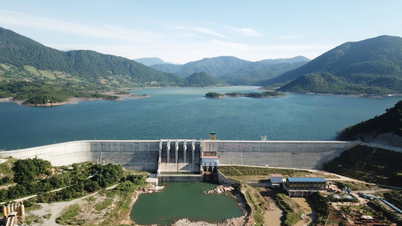
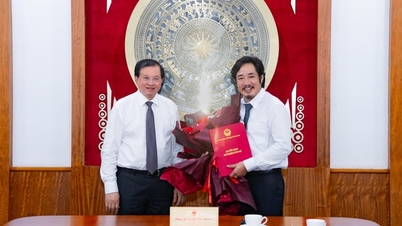




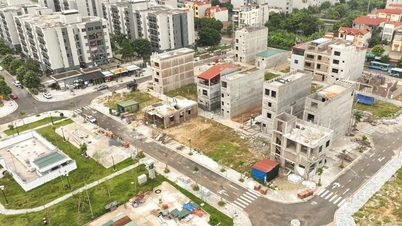



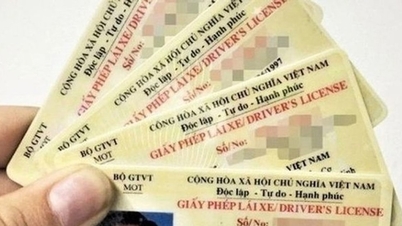

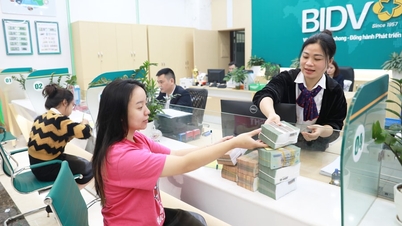
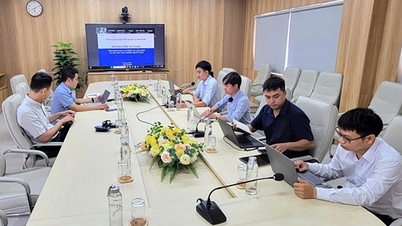




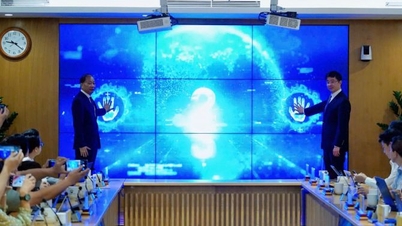
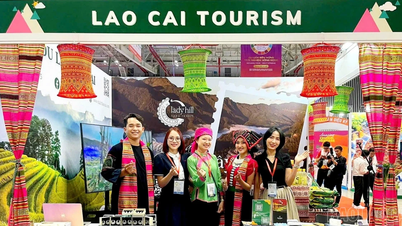






Comment (0)